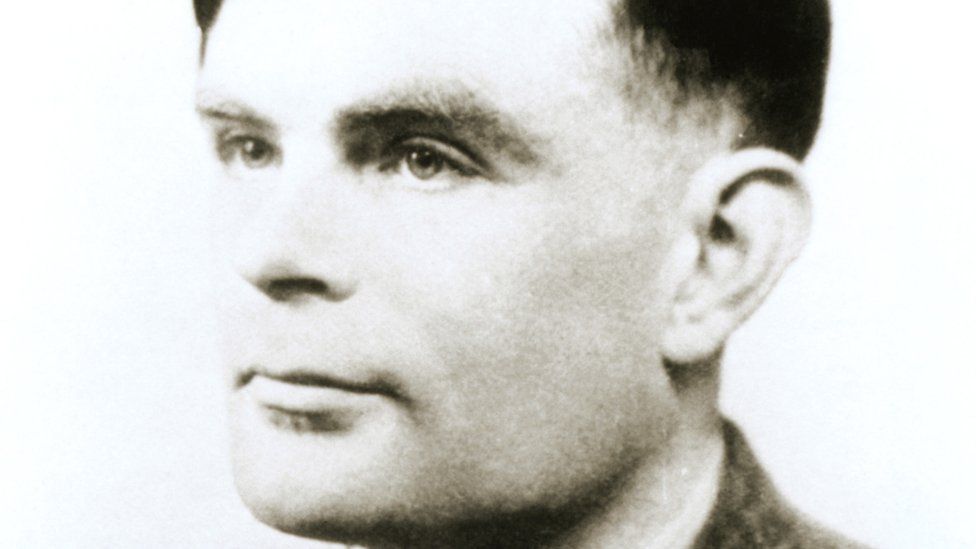Alan Turing's homosexual court files go on display
- Published

Court files recording details of World War Two code-breaker Alan Turing's convictions for homosexual acts have gone on display for the first time.
One of the documents, to be displayed at Chester Town Hall, shows the mathematician admitted "acts of gross indecency" at a trial in 1952.
He then underwent chemical castration.
Helen Pickin-Jones, chair of Chester Pride, said: "Just a few simple lines of text reveal the appalling treatment of one of our national heroes."
During World War Two, Turing's work at Bletchley Park in Buckinghamshire helped Allied efforts to read secret German messages sent by their Enigma machines.
In 1952, he was working at the University of Manchester when he was arrested for having a relationship with 19-year-old Arnold Murray at a time when homosexuality was illegal in the UK.
The court document, provided by Cheshire County Archives, lists the charges, guilty pleas and sentences passed on the pair during a trial in Knutsford.
Turing's 1952 conviction meant he lost his security clearance and had to stop work at GCHQ, the post-war successor to Bletchley Park.
He was found dead from cyanide poisoning at the age of 41 in 1954, a half-eaten apple by his bedside. An inquest concluded that it was suicide.
In 2013, Turing was given a posthumous royal pardon after an official apology by former Prime Minister Gordon Brown in 2009.
On Thursday, the government said proposals to introduce new legislation that would pardon all gay men convicted under historical gross indecency laws would be brought forward "in due course".
Gay rights campaigner Peter Tatchell, who was involved in the bid to secure Turing's pardon, said the exhibition was "an important public service and a great contribution to LGBT history".
The files will be on display until 9 October.
- Published22 September 2016
- Published6 June 2014